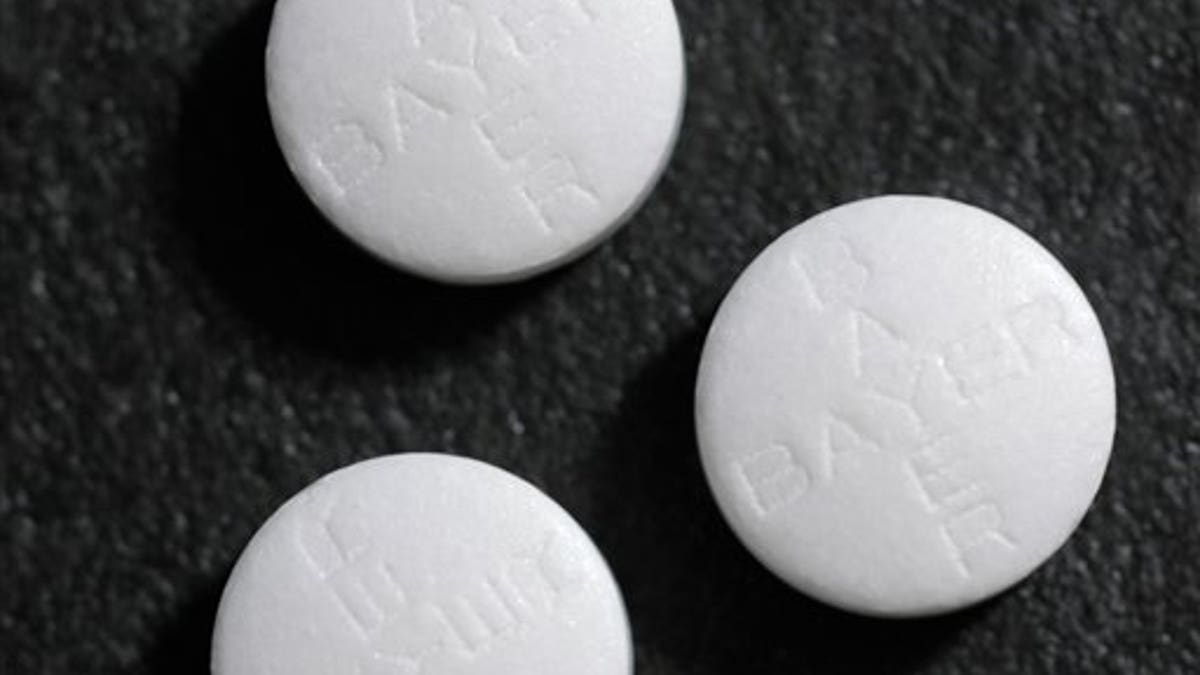
FILE - This May 25, 2004 file photo shows aspirin tablets. Aspirin, one of the world's oldest and cheapest drugs, has shown remarkable promise in treating colon cancer in people with certain genetic mutations that often play a role in the disease. The study appears in the Thursday, Oct. 25, 2012 New England Journal of Medicine. (AP Photo/Houston Chronicle, Dave Einsel) (AP)
Researchers are challenging the common medical belief that some people's genes make them resistant to the heart-protective benefits of aspirin, reporting in a study that the coating on some tablets is the likely cause.
In a report involving 400 healthy patients screened for their response to a single dose of either plain aspirin or a coated pill, "We couldn't find any people who were truly resistant," said Garret FitzGerald, head of the Institute for Translational Medicine and Therapeutics at the University of Pennsylvania, Philadelphia, and senior author of the report.
A daily low-dose aspirin—typically 81 to 162 milligrams—is a mainstay strategy to prevent heart attacks in men and strokes in women.
Aspirin is also given to patients suffering heart attacks and prescribed to those whose blocked arteries have been treated with bypass surgery or propped open with a metal device called a stent.
Due to concern over aspirin's well-known propensity to cause stomach ulcers in some patients, many varieties are marketed with a coating meant to be more friendly to the gastrointestinal tract. About 90 percent of aspirin sold for heart protection is coated, Dr. FitzGerald estimated.
Bayer AG's Bayer HealthCare unit said the findings shouldn't be used to discourage use of coated aspirin in part because the healthy participants with a median age of 26 aren't the "typical population" that takes aspirin for heart protection. Bayer also said coated aspirin has been shown in studies to cut heart risk with a low incidence of gastrointestinal bleeding.
Aspirin's protective effects come from its ability to prevent blood platelets from clumping or sticking together to form clots. But in recent years, studies have suggested that 5 percent to as many as 60 percent of people may be resistant to aspirin, and thus not getting its full protective effects. (Resistance isn't associated with aspirin's efficacy for pain.)
In the new study, many participants initially failed to respond normally to their pill. All of the "nonresponders" had taken a coated tablet, Dr. FitzGerald said. But when platelets were checked eight hours after the aspirin was taken, the number of participants who were resistant dropped substantially compared with a four-hour check, reflecting the slow release time of the coated tablets.
In addition, some patients considered nonresponders—or resistant during one phase of the research—responded normally during another.
The study, published in the journal Circulation, indicates the problem of resistance "may be overemphasized," said Robert Bonow, professor of medicine at Northwestern University and past president of the American Heart Association, who wasn't involved with the report.




















